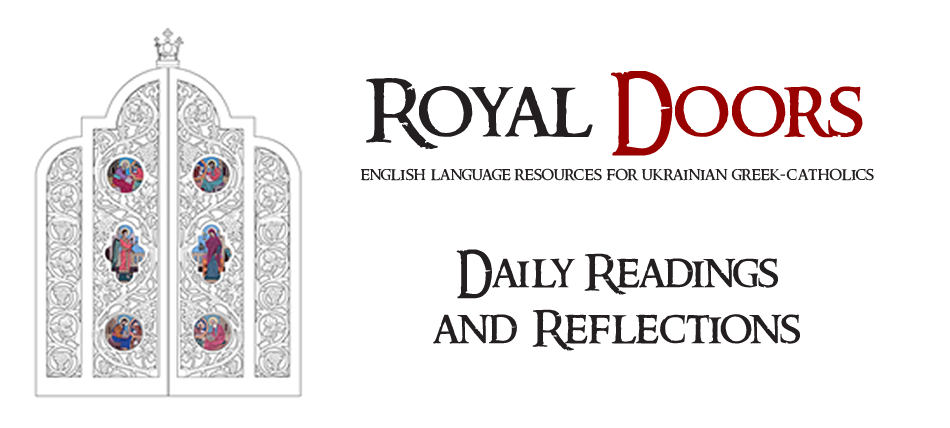What is the hardest thing to accept in Christianity? Is it the doctrine of the Trinity? The idea that God became man? Or that the Eucharist is the body and blood of Christ? While these teachings may meet with obstacles in our minds, the hardest thing for us to accept in practice is the absolute need to forgive others.
In our broken humanity we are much more at home with seeking vengeance. We are often more comfortable with the pre-Christian vision of a vengeful God: “And the LORD said to him, “Therefore, whoever kills Cain, vengeance shall be taken on him sevenfold” (Genesis 4:15).
The Torah enshrined the concept of vengeance in its laws concerning violence: “But if any harm follows, then you shall give life for life, eye for eye, tooth for tooth, hand for hand, foot for foot, burn for burn, wound for wound, stripe for stripe” (Exodus 21:23-25). While modern law is not as demanding, it still endorses the idea of vengeance, clothed in modern dress as “Justice” and “Closure” (which often comes down to a question of money). Perhaps the best comment on this principle is by the Lebanese author Kahlil Gibran, “An eye for an eye, and the whole world would be blind.”
Forgiveness: The Heart of the Gospel
Contemporary Catholic writer Scott Hurd describes the Gospel ideal of forgiveness as “…both the central idea of Christianity, and an assault on the conventional human understanding of justice.” It is an “assault” because it challenges the very nature of the world’s way of handling things. It is the heart of our faith because it is the basic attitude of God toward us and the model of how we can act as the images of God.
“Yours it is to show mercy…” we say to God in many prayers, because He is by nature the forgiving Father, the One who runs to welcome home His prodigal children after they stray. God incarnate in Jesus Christ expresses this forgiveness in His humanity when He prayed for His killers, “Father, forgive them, for they do not know what they do” (Luke 23:34). And so it is in imitation of God that His disciple, the Protomartyr St Stephen, prayed for those who delivered him to death: “And they stoned Stephen as he was calling on God and saying, ‘Lord Jesus, receive my spirit.’ Then he knelt down and cried out with a loud voice, ‘Lord, do not charge them with this sin.’ And when he had said this, he fell asleep” (Acts 7:59-60).
That forgiveness is required, not an option, in the Christian life we see from the Lord’s words in the Sermon on the Mount, “For if you forgive men their trespasses, your heavenly Father will also forgive you. But if you do not forgive men their trespasses, neither will your Father forgive your trespasses” (Matthew 6:14-15). With these words He was in fact highlighting what we say repeatedly in the Lord’s Prayer, perhaps with little intention of putting it into practice. Christ would come back to this theme again and again, doubtlessly more often than the Gospels record:
“Judge not, and you shall not be judged. Condemn not, and you shall not be condemned. Forgive, and you will be forgiven. Give, and it will be given to you: good measure, pressed down, shaken together, and running over will be put into your bosom. For with the same measure that you use, it will be measured back to you” (Luke 6:37-38).
“Take heed to yourselves. If your brother sins against you, rebuke him; and if he repents, forgive him. And if he sins against you seven times in a day, and seven times in a day returns to you, saying, ‘I repent,’ you shall forgive him” (Luke 17:3-4).
Forgiveness is particularly necessary when we presume to pray:
“And whenever you stand praying, if you have anything against anyone, forgive him, that your Father in heaven may also forgive you your trespasses. But if you do not forgive, neither will your Father in heaven forgive your trespasses.” (Mark 11:25-26).
It is especially necessary when we look to make an oblation:
“Therefore if you bring your gift to the altar, and there remember that your brother has something against you, leave your gift there before the altar, and go your way. First be reconciled to your brother, and then come and offer your gift” (Matthew 5:23-24).
The kiss of peace at the Eucharist of all the historic Churches is a rite based on this requirement of the Lord.
The Parable of the Unjust Debtor
In story form this passage, unique to Matthew, repeats the Lord’s fundamental teaching that forgiving others is a prerequisite for being forgiven by God.
The call for the godly-minded to forgive others was already common in late Judaism, but in a limited way. Thus the second century rabbinic scholar Issi ben Judah wrote, “If a man commits an offence once, they forgive him; if he commits an offence a second time, they forgive him; if he commits an offence a third time, they forgive him; the fourth time they do not forgive.” Rabbi Yossi bar Hanina, writing in the second half of the third century ad counsels, “He who begs forgiveness from his neighbor must not do so more than three times.”
By this standard Peter was being downright generous when he suggested forgiving seven times as the new standard. Christ replies by turning around Lamech’s rule of vengeance (“If Cain shall be avenged sevenfold, Then Lamech seventy-sevenfold” – Gen 4:24). Now, Christ says, consider forgiving others seventy times seven, a number meaning “without limit.”
St John Chrysostom saw a particularly damning indictment of the tendency to hold grudges or seek vengeance in this parable. Pointing to the fate of the unforgiving servant, Christ says, “So My heavenly Father also will do to you if each of you, from his heart, does not forgive his brother his trespasses” (Matthew 18:35). Chrysostom offers this interpretation: “Note that He did not say ‘your Father’ but ‘my Father’ for it is not proper for God to be called the Father of one who is so wicked and malicious” (Homily on Matthew 61, 4).
These harsh words go unheard by many in the Church who hold grudges, often for many years. People often feel that broken relationships have nothing to do with our faith. In reality our unwillingness to forgive says that we think God is a sucker for being so compassionate: we know better. As Mother Teresa of Calcutta once said, the rift is with more than our relative or neighbor. “For you see, in the end, it is between you and God. It was never between you and them anyway.”
Source: Eparchy of Newton

